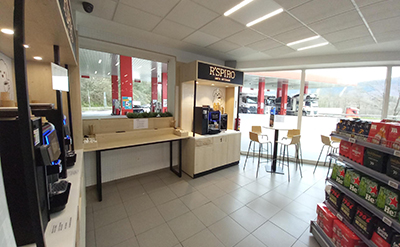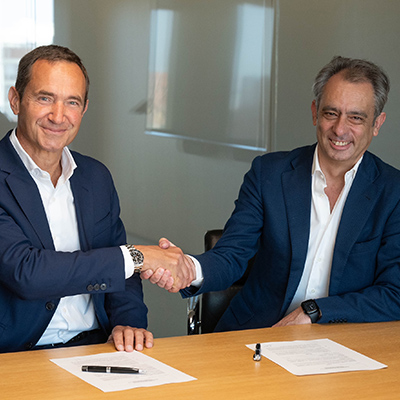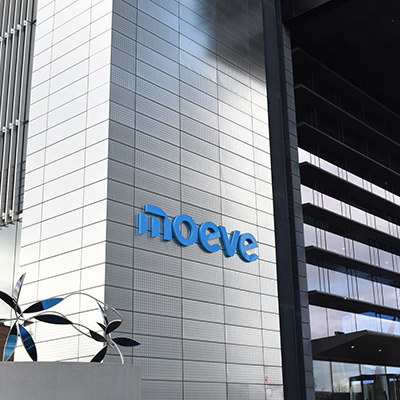- The energy company will continue to operate these two strategic service stations, located on the AP-8 highway in the province of Guipúzcoa, with average daily traffic of 40,000 vehicles, until 2029
- As part of its commitment to sustainable mobility, Cepsa will make significant improvements at both stations, installing solar panels and ultra-fast electric charging points
- The company will also expand its complementary services to continue improving the experience of its customers, both professionals and individuals
The stations, which the energy company has been operating since 2003, will continue under its management for another five years, until 2029. As part of its commitment to sustainable mobility, Cepsa will install solar panels at both service stations and plans to install an ultra-fast electric charging point in Aritzeta. In addition, the company is evaluating the addition of 100% renewable diesel (HVO) to its fuel offerings at these stations.
Oiartzun and Aritzeta are two service stations with a large number of professional customers. They already offer services such as a R'SPIRO corner, where customers can purchase sweet and savory pastries, bread, and premium coffee. During the summer season, the Oiartzun establishment also sells ferry tickets for “Operation Crossing the Strait.” In addition, with the aim of improving the experience of individual customers, Cepsa will expand its range of services for cars in both locations and make various improvements, such as the installation of outdoor payment terminals (OPT) to facilitate fueling and quick payment at the pumps for light vehicles. ATMs will also be installed for cash withdrawals.
Transformation of the service station network
As part of its 2030 “Positive Motion” strategy, Cepsa is working to become a reference in the energy transition and sustainable mobility in this decade. To this end, the company is becoming more focused on the needs of its customers, who also face their own challenges in decarbonization.
Cepsa is transforming its network of service stations, the second largest in Spain and Portugal, into digitalized spaces offering a wide variety of ultra-convenience and catering services. It also aims to offer multi-energy solutions for refueling on the road and alternatives for heavy land, sea and air transport by developing green molecules, mainly second-generation biofuels and green hydrogen.
Cepsa already has over 130 ultra-fast electric charging points at its service stations and is progressing in the development of another 330. In addition, the company produces 100% renewable diesel (HVO) from agricultural waste and used cooking oils, which it supplies to professional customers both at its service stations and directly at the facilities of various companies.




